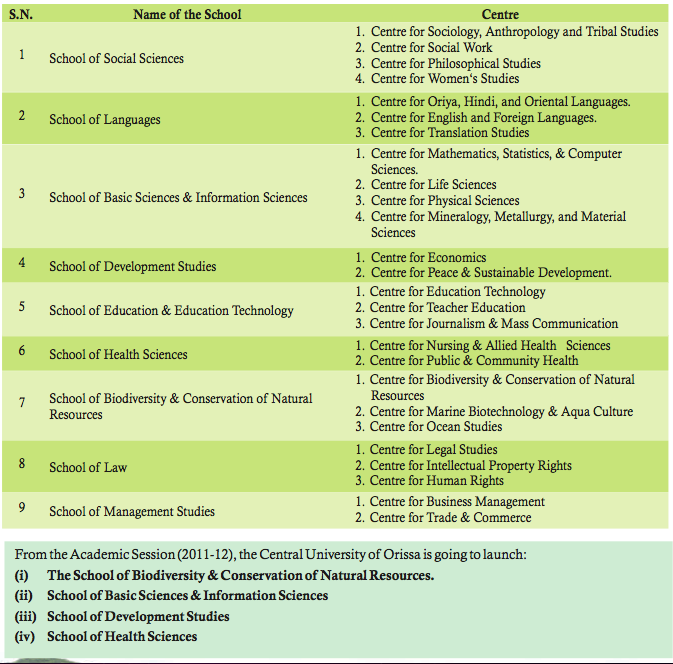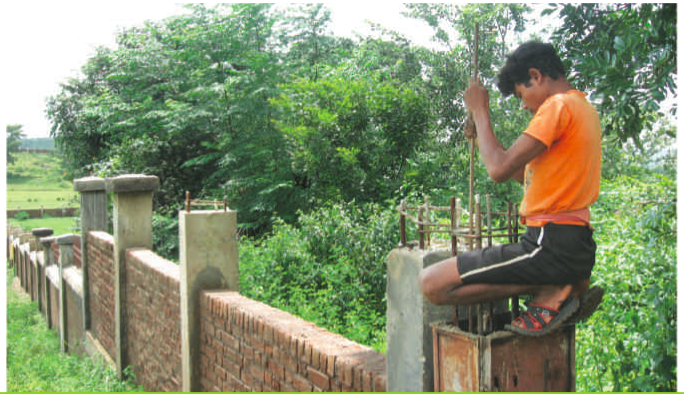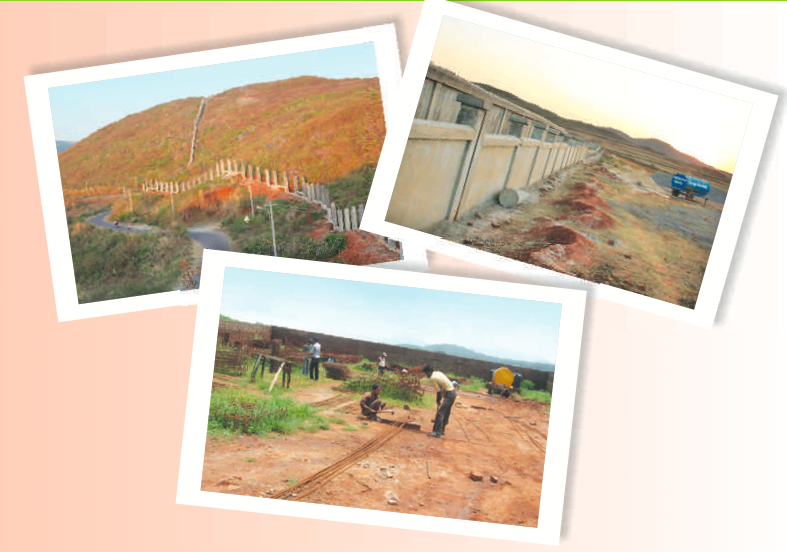Excerpts from the February 2011 newsletter of Central University of Orissa Koraput
April 27th, 2011
The newsletter is at http://www.centraluniversityorissa.ac.in/Downloads/Newsletter_Feb.%202011.pdf.
Page 9: From the Vice-Chancellor’s statement:
From the forthcoming academic session the University proposes to introduce five new subjects under New Schools …
As for the progress of our physical infrastructure of the main campus, the construction of the Boundary Wall is almost through and the construction of buildings in the first phase, the Girls’ Hostel, the Boys’ Hostel, the Guest House and the Academic Block I are likely to start towards the end of March.
… As a Founding Vice-Chancellor my vision of this composite University has two well-defined thrust areas in terms of priorities: One is healthcare and subsequently the introduction / dissemination of medical education and the other is related to the development and welfare of the tribal community.
Page 12: Development of Campus (progress of the Boundary Wall)
The main campus of our University is coming up at Sunabeda. The construction of boundary wall undertaken by CPWD is in progress. Out of actual 9.3 kms of boundary wall about 8.6 kms work is completed. The pillar excavation, raising columns on rocky terrains of the boundary is almost over. The brickwork and plastering of the Boundary Wall is going on in full swing.
The master plan has also been approved by the University Building Committee. Recently the Chief Engineer of CPWD has visited our main campus in Koraput and inspected the progress of construction work.
Page 24: The List of forthcoming Centres and Schools of the Central University of Orissa duly approved by the Academic Council and the Executive Council
The Academic Council and the Executive Council of CUO have approved the establishment of the following new Schools and Centres:

Page 31: Centre for Tribal Welfare and Community Development
Extreme poverty has its own typical features and adverse impacts on any society. Migration in search of survival for livelihoods is gradually becoming a common phenomenon in the KBK region as well as in the other parts of the country. For the survival of local people, the traditional skill based occupations are gradually becoming uneconomic options. On the other hand the same traditional skills have a flourishing market value in neighbouring states. This creates situations for mass migration, often with the family, in search of a livelihood even under stressful conditions. In the recent trend of economic development, the traditional skill based occupations have also became largely resource dependent. With the depletion of natural resources, the traditional occupations of tribes are fading away, though these are also the outcome of the occupational mobility.
The Koraput District comes under the tribal sub-plan area and PESA. As per the provision, PESA promises devolution of power to Panchayats completing the tribal self-rule. While larger accountability for the utilizing the provisions under the Act is vested in the Panchayats, due to poor understanding of the Act by the Panchayatiraj functionaries the Act seems to have lost its legal tooth in this area. This calls for wider accountability of government and civil society bodies to build the capacity of the PRIs thereby enabling them to utilize the power and authority vested in them for the development of their area and the communities. The customary rules existing even today provide a framework to compare the provisions of PESA and a suitable blending of two can contribute towards good governance to spearhead developmental process.
According to the report of the Committee on the Constitution of Separate Development Board in Orissa, 96% of Community Development Blocks in KBK districts are either ‘very backward’ or ‘backward’. According to the UNDP Human Development Report 2004, Malkangiri, Kandhamal, Gajapati, Koraput, Nabarangpur are the bottom five districts in terms of HDI values, three of which are in KBK region.
Considering the above issues, the Centre for Tribal Welfare and Community Development (CTWCD) has been established as University’s first initiative of Corporate Social Responsibilities to foster the needs and take up the issues of the tribals of KBK region as well as other tribal groups of India.
The Centre for Tribal Welfare and Community Development at Central University of Orissa is functional since 5th June,2010. A batch of tribal youth has already received training on mushrooms cultivation. New initiatives are under progress and it is hoped that various trade identified by the Centre will benefit the tribes.
Page 47: Progress of new Campus


Entry Filed under: Central University of Orissa, Koraput,Koraput-Jeypore-Sunabeda area (5)